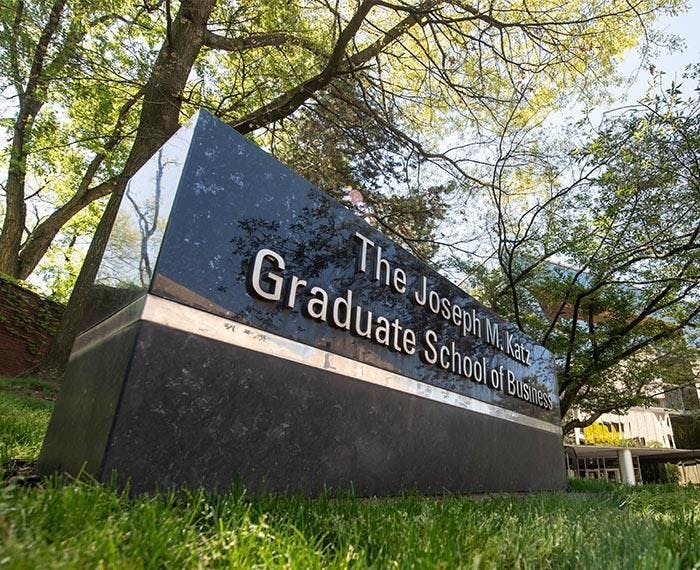Editor’s note: The State News and The Pitt News, University of Pittsburgh’s student newspaper, jointly published this article on their respective sites. State News administration reporter Alex Walters and The Pitt News assistant news editor Alexandra Ross co-reported its contents.
When Charles Hadlock left his professorship at Michigan State University last summer, he was only allowed to interact with his students virtually.
Why? Because, a month later, the university’s Title IX office began investigating his drunken sexual misconduct with two students at a university event.
When that investigation concluded – finding he had violated the university’s Title IX and Relationship Violence and Sexual Misconduct policies – Hadlock had already moved to a new job, and MSU didn’t let anyone know what it found.

So today, Hadlock can be found each Monday and Wednesday afternoon teaching undergrads in a Mervis Hall classroom at the University of Pittsburgh’s business school.
Students and faculty at Pitt are grappling with their new professor’s past misconduct and a lack of communication from their university, while officials at MSU are reevaluating the system that allowed him to move to Pitt unscathed.
The conduct in question occurred at MSU’s business school’s end-of-year gala in April 2022. Hadlock “appeared intoxicated” at the event and “engaged in non-consensual sexual contact” with two students and sexually harassed one of them, according to a finalized investigation conducted by the MSU's Office of Institutional Equity. This conduct was determined to be “objectively offensive,” “pervasive,” “persistent,” “unwelcome,” “impactful,” “on the basis of sex” and “severe.”
About a month after the gala as the investigators began their work, Hadlock received an email from former business school dean Sanjay Gupta asking that “any contact (he) may have with students be done remotely and related only to their academics or their career related matters,” according to a copy obtained by The State News.
The allegations against Hadlock and Gupta’s failure to report them to MSU’s Title IX office cost Gupta his job. Controversy surrounding that termination has prompted donor protests, board tumult, a defamation lawsuit and a $1.6 million independent investigation by firm Quinn Emanuel Urquhart & Sullivan LLP which provided recommendations for improving the systems that allowed Hadlock’s conduct to go unnoticed and unpunished.
Currently, MSU does not keep track of where faculty work after they leave the university or have a mechanism to notify other institutions of newly finalized disciplinary investigations, Deputy University Spokesperson Dan Olsen said.
The independent investigation found that lack of communication “jeopardizes the safety of those outside MSU.”
As to whether MSU would adopt the recommendation and implement a notification system, Olsen said discussions are ongoing within the administration. MSU Board Chair Rema Vassar and the Board of Trustees have refused to comment on the recommendation or the Quinn Emanuel report.
Elizabeth Abdnour, a former MSU Title IX investigator who now runs a Lansing law firm specializing in discrimination cases, said she fears the lack of information sharing puts students at other institutions in danger.
“The phrase I always have in my head is ‘passing the trash,’” Abdnour said. “I think schools see it as ‘Well, I don't have to deal with that person anymore, they're gone.’ … If you’re somebody who’s going to pretend that you care about students, you can't just care about students at MSU, you need to care about students at whatever institution they might be at.”
A 2019 investigation by The Chronicle of Higher Education found that it’s common for professors to avoid repercussions by moving to a new institution before investigations into their conduct are complete — for some, it’s a calculated tactic.
“We advise people when there’s an allegation to get out and start looking for a new school before there is a finding,” Joshua Engel, a lawyer who represents faculty members and students accused of harassment, told The Chronicle.
On Pitt’s end, the hiring process began before the gala incident, when Hadlock was invited to visit their campus and present his research to the business faculty.
Pitt business administration professor Vicky Hoffman and two other sources familiar with the situation said the research Hadlock presented — titled “Protecting Your Friends: The Role of Connections in Division Manager Careers” — upset one faculty member.
Hoffman said the concern was minor, with a faculty member allegedly taking issue with an innuendo used in the research.
The joke in question is a section of the paper titled “Friends with shareholder benefits” – a reference to a colloquial phrase describing a relationship that is sexual but not committal – in which Hadlock mathematically evaluates the financial benefits of friendships between managers and CEOs.
The faculty member reported their concern, but the Katz administration dismissed it, Hoffman and the sources said.
Regardless of the concerns stemming from his visit, Hadlock was hired at Pitt and began teaching last fall. Then, in January, when Michigan newspapers first published the details of the gala incident, Pitt learned of Hadlock’s past.
Soon after, Pitt’s Office of Compliance, Investigations and Ethics began reviewing “the circumstances surrounding Dr. Hadlock’s recruitment and ultimate hire by the University,” Pitt spokesperson Nick France said.
France said the findings of that investigation are currently under review by Katz school leadership, including Dean Gene Anderson. France declined to answer questions on what action is being considered.
France further declined to comment on whether Hadlock’s presence at Pitt jeopardizes the safety of its students, as the MSU board’s report asserts.
Hadlock also did not respond to an emailed request for comment on the contents of this story. He could not be reached by phone.
All of this information has come as a shock to many of Hadlock’s students and colleagues.
Pitt organizations and management professor Carrie Leana said she found Hadlock’s reported behavior “deplorable.”
“That behavior doesn't comport with my values or the values of my colleagues,” Leana said.
A student currently in Hadlock’s class at Pitt, who wished to remain anonymous, said the allegations against Hadlock were “disappointing” to hear, especially because she believes he “tries really hard to be inclusive” toward his female students — for example, by not just using masculine pronouns and language to refer to hypothetical business situations in class.
“If it's any consolation, maybe it means he learned and improved some way, but it's awful,” she said. “It's really awful to hear.”
The student said she had not heard about her professor’s reported misconduct until she was approached for comment. She believes students should have been informed about the incident and what actions Pitt is taking.
Another student of Hadlock’s, who also wished to remain anonymous, didn’t take issue with Hadlock’s past.
The student said while he thinks it is “definitely warranted” for students to have concerns, he believes his professor is a “good guy” and “(doesn’t) have any reservations about him.”
“I think it would be kind of a shame if there was any serious action taken against him,” he said. “I like his class and I kind of feel bad for him. I mean, obviously I don't support anything like that, but, you know, it just sounds like he was having a good time at a gala and just got a little carried away.”







